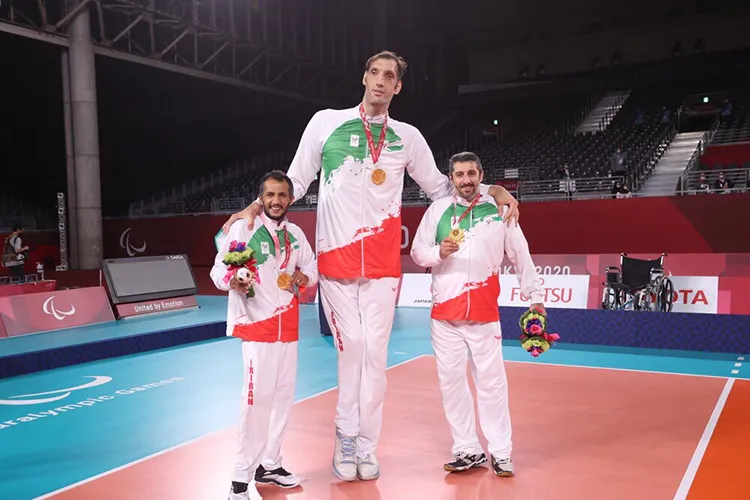Ayah Of The Week – Volume01 Issue23
Embracing Dignity and Respect: Reflections on Disability from the Qur’an
International Day of Persons with Disabilities.
Observed annually on 3rd December, invites us to reflect on the intrinsic dignity, value, and potential of every human being, regardless of physical ability. The opening verses of Surah Abasa in the Qur’an offer profound guidance on the necessity of respecting and honouring individuals with disabilities. These verses recount an incident where the Prophet Muhammad (PBUH) or one of his companions was gently rebuked by Allah SWT for his momentary oversight in prioritising influential leaders over a blind man, Abdullah ibn Umme Maktum, who sought spiritual guidance.
The Qur’an narrates:
عَبَسَ وَتَوَلَّى ﴿١﴾ أَنْ جَاءَهُ الْأَعْمَى ﴿٢﴾ وَمَا يُدْرِيكَ لَعَلَّهُ يَزَّكَّى ﴿٣﴾ أَوْ يَذَّكَّرُ فَتَنْفَعَهُ الذِّكْرَى ﴿٤﴾
“He frowned and turned away (1) because there came to him the blind man. (2) But what would make you perceive that he might be purified, (3) or be reminded, and the remembrance would benefit him?” (4)
This moment highlights Allah’s unwavering emphasis on inclusivity and compassion, offering lessons that resonate deeply on this day dedicated to the dignity and rights of persons with disabilities.
Insights for Youth: Challenging Superficial Judgments
- Physical Limitations Do Not Define a Person’s Worth
The verses underscore that a person’s physical challenges do not diminish their spiritual, intellectual, or moral capacity. Abdullah ibn Umme Maktum, despite his blindness, sought spiritual growth with determination. This highlights that worth is rooted in character and aspirations, not appearances.
“عَبَسَ وَتَوَلَّى أَنْ جَاءَهُ الْأَعْمَى“
“He frowned and turned away because there came to him the blind man.” (Abasa: 1–2)
- Avoid Judging Others by Appearances
In the opening verses of Surah Abasa, Allah SWT teaches us to look beyond appearances and value people for their inner qualities. The story of Abdullah ibn Umme Maktum, a blind man overlooked briefly in favour of influential leaders, reminds us that true worth lies in sincerity, intentions, and character, not outward looks or status. “وَمَا يُدْرِيكَ لَعَلَّهُ يَزَّكَّى“ (“But what would make you perceive that he might be purified?” – Abasa: 3) urges us to appreciate the unseen potential in everyone. A person’s appearance or perceived abilities often have little to do with their real strength or contributions.
This message is especially vital in the era of social media, where looks and superficial impressions are often overemphasised. In a world of filters, likes, and viral trends, it’s easy to fall into the trap of judging others—or even yourself—based on appearances. However, Islam teaches us to focus on depth, values, and sincerity, which are far more enduring. By rejecting surface-level judgments, young people can build more meaningful connections, appreciate diversity, and see the beauty in everyone’s unique journey.
Lessons for Parents: Raising Compassionate and Respectful Children
- Model Humility and Reject Arrogance
The Qur’an rejects arrogance and any act of belittlement, especially towards individuals with disabilities. Parents must exemplify respectful behaviour, as children learn through observation.
“وَمَا يُدْرِيكَ لَعَلَّهُ يَزَّكَّى“
“But what would make you perceive that he might be purified?” (Abasa: 3)
- Rectify Mistakes and Honour People with Some Disabilities
The Prophet Muhammad (PBUH) set a profound example of humility and the willingness to rectify mistakes, especially in matters of respect and inclusion. After the incident involving Abdullah ibn Umme Maktum, the Prophet not only ensured his respectful treatment but also elevated his status within the Muslim community. On several occasions, he appointed Abdullah as his deputy in Medina during military campaigns, entrusting him with significant responsibility. This act of honour demonstrated that a physical disability does not diminish a person’s worth or their ability to contribute meaningfully to society. It also served as a reminder to others that everyone, regardless of their abilities, has unique strengths and a valued role within the community.
Parents and educators can draw from this example to teach children the importance of acknowledging and correcting mistakes. When lapses occur—whether it’s failing to show proper respect or unintentionally hurting someone—promptly addressing the error and taking steps to make amends can turn a mistake into an opportunity for growth. By actively valuing and honoring people with disabilities, families and communities foster an environment of respect and inclusion. This not only builds stronger relationships but also instils in young people the understanding that true dignity lies in character and actions, not external attributes.
Guidance for Imams and Cultural Centres: Nurturing Inclusive Communities
- Promote Ethical Values Beyond Social Perception
Imams should emphasise that ethical behaviour is valuable for its intrinsic goodness, not for external approval. The Qur’an’s correction to the Prophet (PBUH) reminds us that respect must be upheld even when the other person cannot see or hear our actions.
“عَبَسَ وَتَوَلَّى أَنْ جَاءَهُ الْأَعْمَى“
“He frowned and turned away because there came to him the blind man.” (Abasa: 1–2)
- Foster Awareness of Subtle Disrespect Towards People With Some Disabilities
Cultural centres must educate communities on the subtleties of respect. Even unintentional oversights or minor neglect towards individuals with disabilities can harm their dignity. True respect requires active vigilance and sensitivity.
Final Reflections
The opening verses of Surah Abasa present a divine standard of compassion and inclusivity that challenges societal biases against individuals with disabilities. They affirm that dignity, respect, and spiritual worth transcend physical limitations.
By reflecting on the profound human and ethical concepts within these radiant verses, we should not only take pride in being Muslim but also recognise that true faith lies in adhering to the principles and guidance set forth in the Qur’an and Hadith. In this instance, we cannot claim to be true Muslims while neglecting the rights and dignity of individuals with some disabilities.
editor's pick
news via inbox
Subscribe to the newsletter.




